- پروگرامرها
- دما و رطوبت
- سایر ماژول ها
- سنسور بخار سرد
- کی پد و جوی استیک
- ماژول GPS-GPRS
- ماژول رله و سوییچ
- ماژول شبکه
- ماژول نمایشگر
- ماژول های RF
- ماژول های RFID
- ماژول های پخش صدا
- ماژول های پردازش تصویر
- ماژول های تاریخ و ساعت
- ماژول های تغذیه – ولتاژ – جریان
- ماژول های ذخیره داده
- ماژول های شتاب سنج و ژیروسکوپ
- ماژول های مبدل
- ماژول های محافظ شارژ باتری
- ماژول های مولد پالس
- ماژول ولتمتر و آمپرمتر
برد آردوینو نانو RF-NANO
22
نفر در حال مشاهده این محصول هستند!
دسته: آردوینو, بردهای آردوینو, بردهای توسعه
توضیحات
RF-Nano Nano Type-c Board ATmega328P 5V 16M CH340 Integrate NRF24L01+2.4G Wireless For Arduino
Product description
The NRF24LO1+ chip is integrated on the RF-NANO board, which makes it have unlimited transceiver functions, which is equivalent to combining an ordinary Nano board and an NRF24LO1 module into one, which is more convenient to use and small in size.
The RF-NANO has exactly the same pins as the common Nano board, which is easy to transplant.
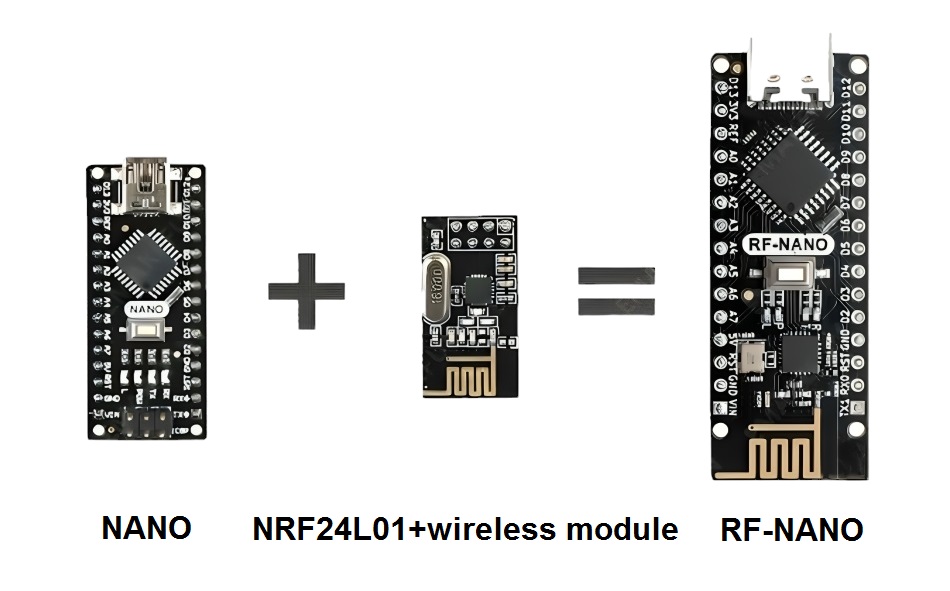
Processor introduction
Arduino RF-NANO microprocessor is ATmega328 (Nano3.0), with Type-c interface, and has 14 digital input/output (6 of which can be used as PWM output), 8 analog input, a 16MHz crystal oscillator, A USB-Micro port, an ICSP heaper and a reset button.
Product parameters
Processor: ATmega328P
Working voltage: 5V
Input voltage (recommended): 7-12V
Input voltage (range): 6-20V
Digital IO pins: 14 (6 of which are used as PWM outputs) (D0~D13)
Analog input pins: 6 (A0~A5)
Io pin DC current: 40mA
Flash Memory: 32KB (2KB of which is used for bootloader)
SRAM: 2KB
EEPROM: 1KB (ATmega328)
USB to serial port chip: CH340G
Working clock: 16 MHz
power supply:
Arduino RF-Nano power supply mode:
Type-c interface power supply and external vin connected to 7~12v external DC power supply
Memory:
ATmega328 includes on-chip 32KB Flash, of which 2KB is used for Bootloader Also 2KB SRAM and 1KB EEPROMo
input Output:
14 digital input and output ports:
The working voltage is 5V, and the output and access limit current of each channel is 40mA.
Each channel is configured with a 20-50K ohm internal pull-up resistor (not connected by default) In addition to this, some pins have specific functions.
Serial port signal Rx (No. o), TX (No. 1):
provide the serial port receiving signal of TTL voltage level, and connect with the corresponding pin of FT232RI.
External Interrupt (No. 2 and No. 3):
Trigger the interrupt pin, which can be set as rising edge, falling edge or both.
Pulse width modulation PWM (3, 5, 6, 9, 10, 11):
Provide 6 8-bit PWM outputs.
SPI ( 10(SS), 11(MOSI), 12(MISO), 13(SCK)):
SPI communication interface.
LED (No. 13):
Arduino is specially used to test the reserved interface of LED.
When the output is high, the LED is turned on, otherwise, the LED is off when the output is low.
6 channels of analog input A0 to A5:
each channel has a resolution of 10 bits (that is, the input has 1024 different values), the default input signal range is
0 to 5v, the upper limit of the input can be adjusted by AREF.
In addition to this, some pins have specific functions.
TWI interface (SDAA4 and SCL A5):
support communication interface (compatible with I2C bus).
AREF:
The reference voltage of the analog input signal.
Reset: Reset the microcontroller chip when the signal is low.
Communication Interface:
Serial port:
The built-in UART of ATmega328 can communicate with the outside through digital ports o (RX) and 1 (TX).
Datasheet: RF – NANO
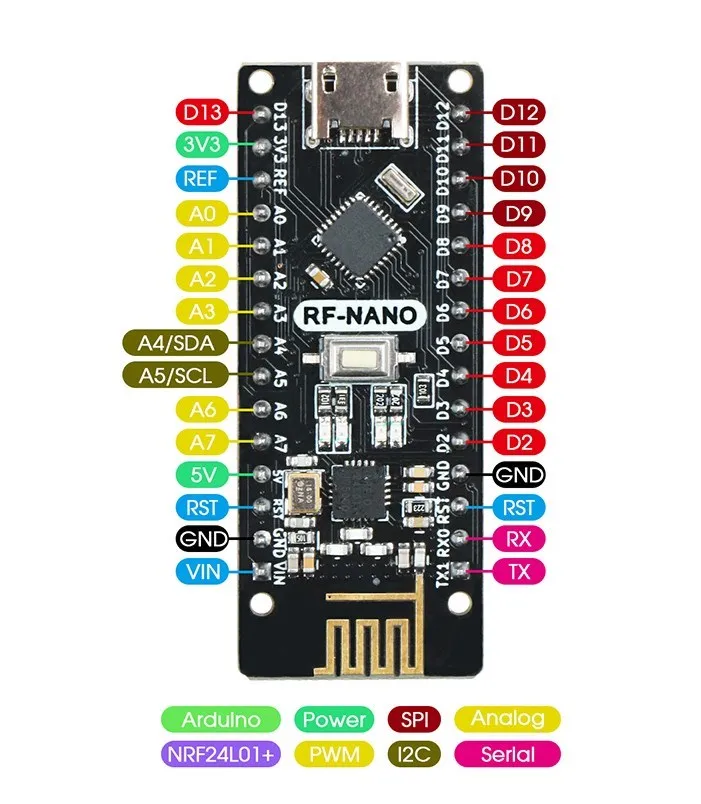
Nano Board with CH340 chip without USB Cable compatible with Arduino
Note: CH340 chip might not work directly with some PC/Laptop, you will need some ch340 drivers.
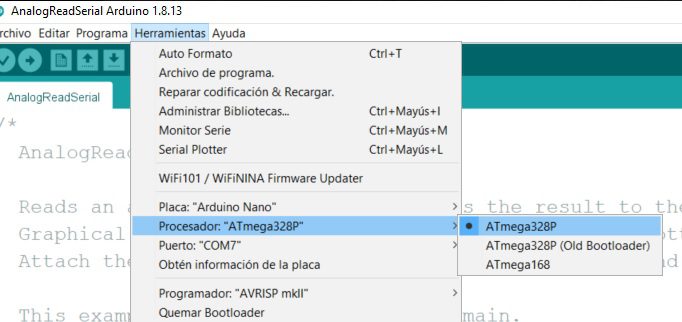
In the following link you can download the universal driver CH341SER which incorporates the CH340G version that the board needs:
CH340G Controller
نظرات (0)
اولین نفری باشید که دیدگاهی را ارسال می کنید برای “برد آردوینو نانو RF-NANO”
محصولات مشابه
برد آردوینو WeMos D1 با هسته ESP-WROOM-32 دارای بلوتوث و وای فای داخلی
آردوینو پرومینی 5 ولت Arduino Pro Mini 5v
۲۵۵,۰۰۰ تومان
شیلد مولتی فانکش آردوینو ARDUINO MULTI FUNCTION
هدر برد HK32F103CBT6
۱۳۵,۰۰۰ تومان

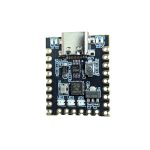
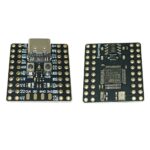
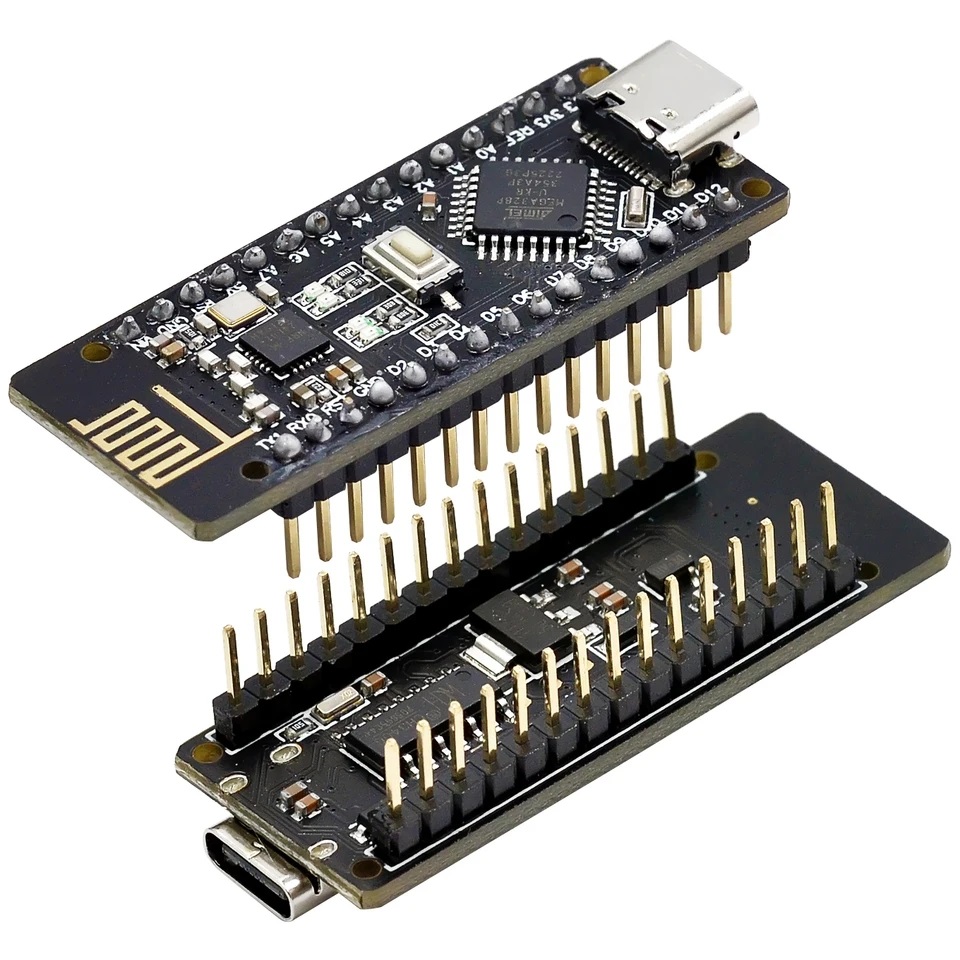
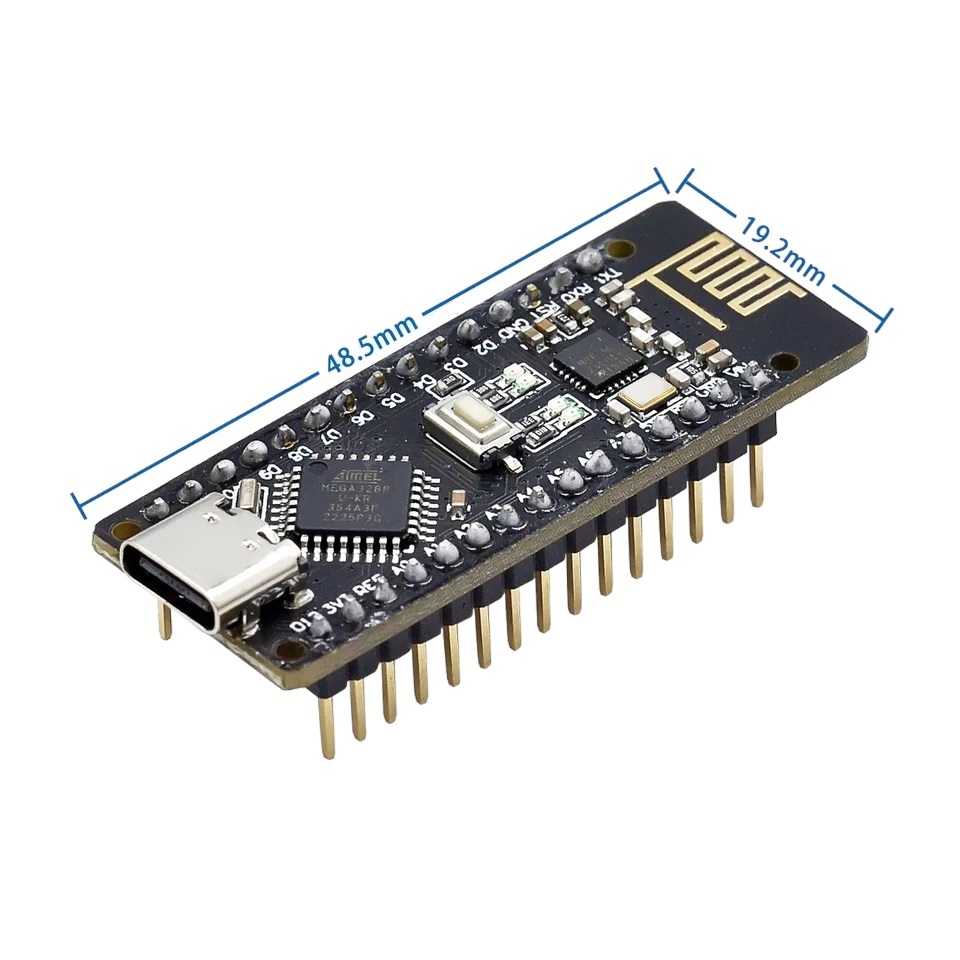
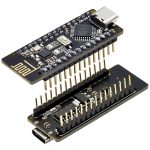
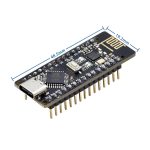

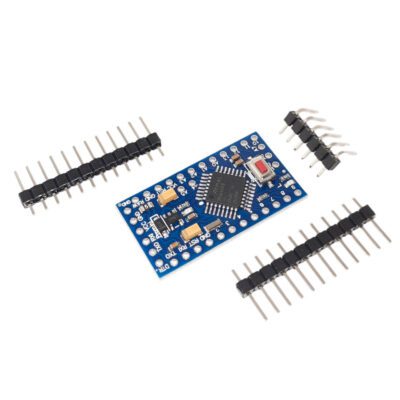
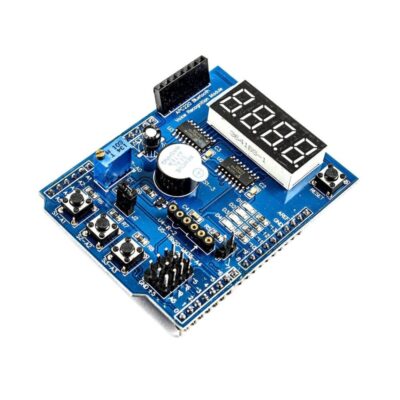

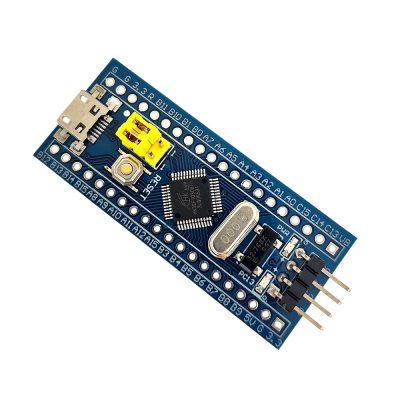

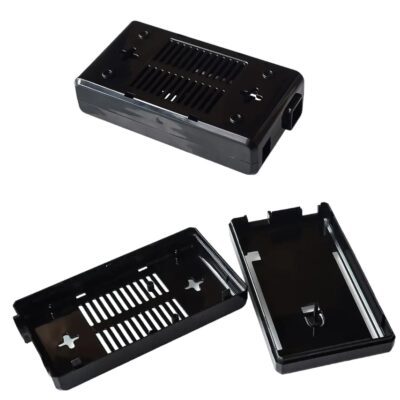
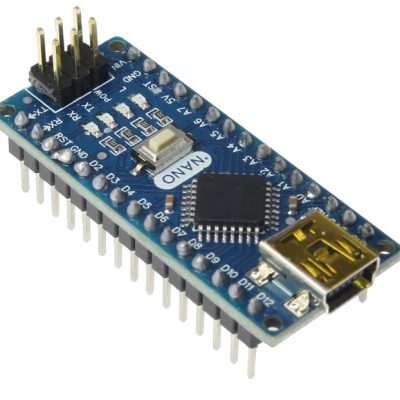

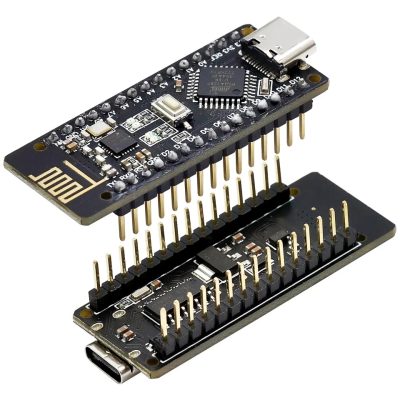
دیدگاهها
هیچ دیدگاهی برای این محصول نوشته نشده است.